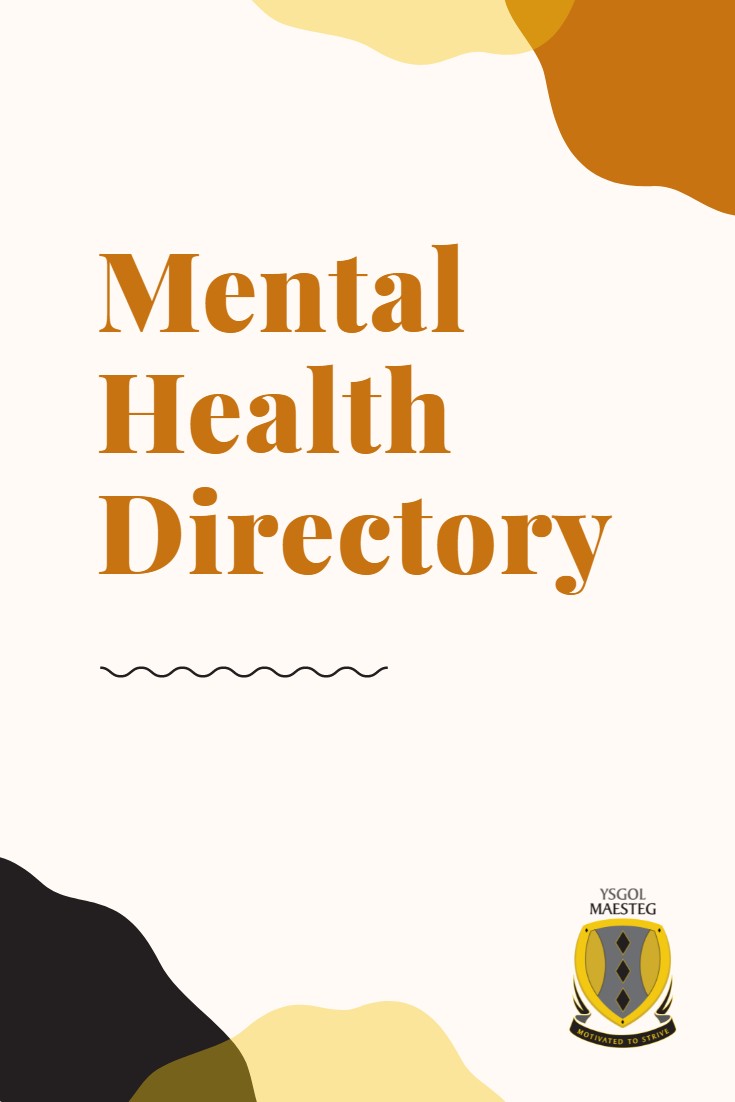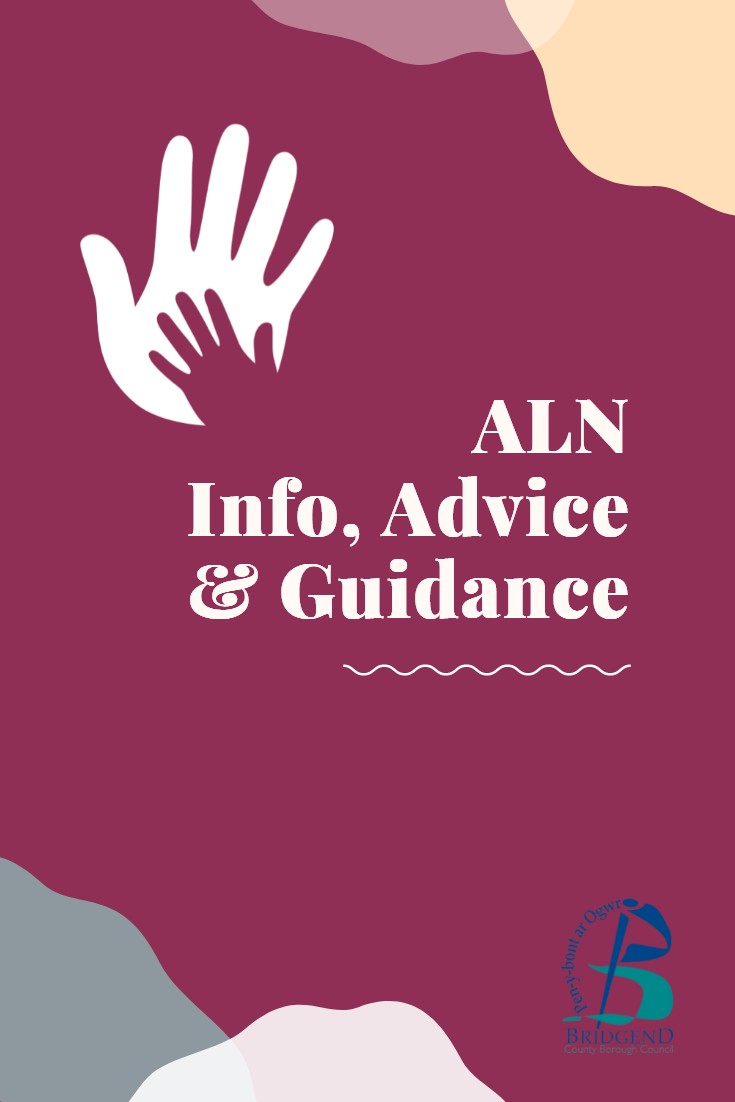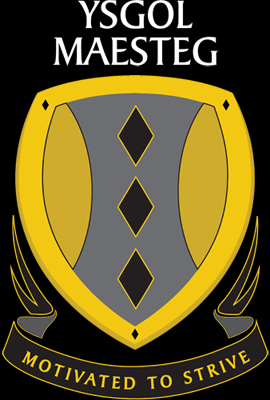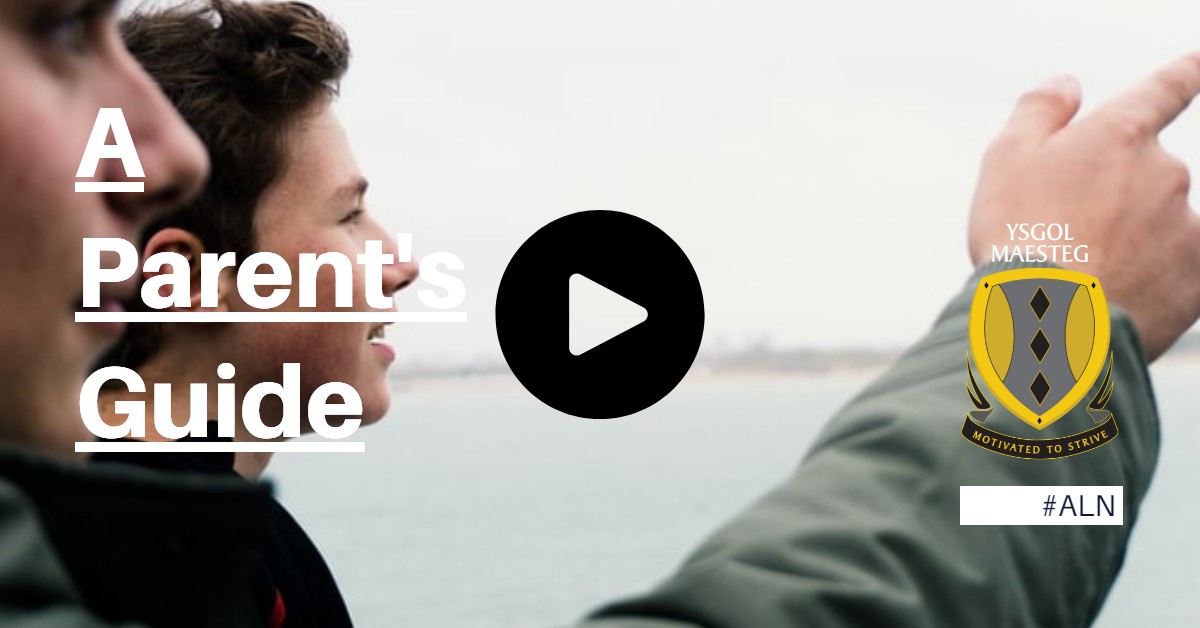
Additional Learning Needs
Maesteg School ALN
A person-centred approach to provide effective support, monitoring and interventions for your child.
Watch the latest consultation video on the ‘Draft Additional Learning Needs Code for Wales’ featuring the Minister for Education and the Minister for Health and Social Services.
The Additional Learning Needs and Education Tribunal (Wales) Act 2018
The Additional Learning Needs and Education Tribunal (Wales) Bill was passed by the National Assembly for Wales on 12 December 2017 and became an Act on 24 January 2018 after receiving Royal Assent.
This will create the legislative framework to improve the planning and delivery of additional learning provision, through a person-centred approach to identifying needs early, putting in place effective support and monitoring, and adapting interventions to ensure they deliver desired outcomes.
The Act will be supported by:
- regulations – secondary legislation where further detail is required
- an ALN Code – statutory guidance and mandatory requirements to help people and organisations work within the law.
In 2018, the ALN Code and regulations which support the Act will be revised, consulted on, laid before the National Assembly for Wales and published.
For the time being, local authorities and all those who work with children and young people with SEN, must ensure that they continue to comply with the duties placed upon them by the Education Act 1996. They must also continue to have regard to the SEN Code of Practice for Wales (2004).
Bridgend County Borough Council
Cyngor Bwrdeistref Sirol Pen-y-bont ar Ogwr
Additional Learning Needs

The Act will:
The introduce of the term Additional Learning Needs (ALN)
The Act replaces the terms ‘special educational needs’ (SEN) and ‘learning difficulties and/or disabilities’ (LDD) with the new term ALN.
A 0-25 age range
There will be a single legislative system relating to the support given to children and young people aged between 0-25 years who have ALN. This is instead of the two separate systems currently operating to support children and young people of compulsory school age who have SEN; and young people in further education who have LDD. As a result, transition of learners between school and post-16 education will be improved to allow greater support and rights for this group of learners.
A unified plan
The Act will create a single statutory plan (the individual development plan (IDP)) to replace the existing variety of statutory and non-statutory SEN or LDD plans for learners in schools and further education. This will ensure greater consistency and continuity and, unlike the current system, ensure that provision and rights are protected regardless of the severity or complexity of needs.
Increased participation of children and young people
The Act requires that learners’ views should always be considered as part of the planning process, along with those of their parents. It is imperative that children and young people see the planning process as something which is done with them rather than to them.
High aspirations and improved outcomes
The emphasis of IDPs will be on making provision that delivers tangible outcomes that contribute in a meaningful way to the child or young person’s achievement of their full potential.
A simpler and less adversarial system
The process of producing and revising an IDP should be much simpler than is currently the case with statements of SEN and should avoid the adversarial nature of the existing approach.
Increased collaboration
The new system will support a strong focus on collaboration. Encouraging improved collaboration and information sharing between agencies, which are essential to ensuring that needs are identified early and the right support is put in place to enable children and young people to achieve positive outcomes. Three fundamental new roles are created by the Bill to facilitate increased collaboration – Additional Learning Needs Coordinators in education settings; Designated Educational Clinical Lead Officers in health board; and Early Years ALN Lead Officers in local authorities.
Avoiding disagreements and earlier disagreement resolution
Clear and consistent rights of appeal
Where disagreements about the contents of an IDP cannot be resolved at the local level, the ActBill will ensure that children and young people entitled to an IDP (and their parents in the case of those that are under 16 years) will have a right of appeal to a tribunal.
A mandatory Code
The provisions included in the Bill will be supported by a new statutory ALN Code. The Code will ensure that the new ALN system has a set of clear, legally enforceable parameters within which local authorities and those other organisations responsible for the delivery of services for children and young people with ALN, must act.
It will, therefore, be a type of subordinate legislation, and confer duties and rights on those subject to it. The Code will also set out practical guidance on how the statutory duties will be carried out, which will be supported by best practice illustrations.
A bilingual system
Services will be required to consider whether the child or young person needs ALP in Welsh. If they do, this must be documented in the IDP and ‘all reasonable steps’ must be taken to secure the provision in Welsh. A series of strategic duties are also aimed at driving progress towards a truly bilingual ALN system and the Bill includes a mechanism so that the duties to provide ALP through the medium of Welsh become absolute over time.
The Additional Learning Needs and Education Tribunal (Wales) Act 2018

Mental health Directory
Whether you’re concerned about yourself or a loved one, these helplines and support groups can offer expert advice.
ALN Information, Advice & Guidance
Click the link for a PDF booklet created by the 5 local authorities that work together in the Central South region, including Bridgend County Borough Council.



